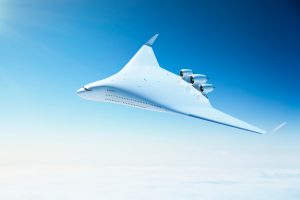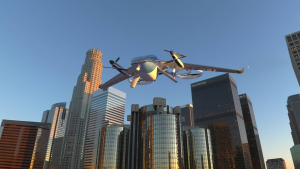Aviation would not be what it is today without the ambition and insight of the pioneers who first imagined that humans could take to the skies. Without their desire to challenge what is possible, routine air travel would not be the norm, military aircraft would not be state-of-the-art, and new parts of the solar system would not have been explored.
This impetus remains today. The next challenge is constantly at the forethought of innovators. These innovators are not only aviators and the traditional aviation companies, but also non-traditional players such as tech and IT companies that are keen to see how their solutions could make them the next pioneers of aviation.

It is now a possibility that, in this lifetime, we could not only be tourists in space, but also travelling to a space port terminal to embark on this journey via an electrically powered air taxi drone. This prospect brings together three key initiatives making waves in aviation: space travel, urban air mobility and sustainable aviation. Other innovations evolving in this new space arena include better communications that will boost the connectivity available for all, as well as the ultimate goal for space: the possibility that we could live on another planet.
This would not have seemed within reach even a decade ago, so it is exciting to think what new possibilities could arise as pioneers reinvent the sky over the next 10 years.
What makes this leap in emerging space technology development so interesting is that a domain previously dominated by governments is now being entered by industry and pioneering entrepreneurs. Disrupters include players like Space X, Blue Origin and Ball Aerospace in the space arena, and Bell, Zuri and Joby Aviation in the aerospace market.
Another area in which start-ups are leading is in the development of urban air mobility technologies.
The increase in the use of unmanned aircraft has led to associated technologies rapidly becoming more reliable and available, and bright minds have realized they could be applied to new applications such as travel.

Electric vertical take-off and landing (eVTOL) aircraft are being developed by large original equipment manufacturers (OEMs) and small start-ups alike. They’re racing to become the first to develop a certifiable system and the associated infrastructure, vying to tap into a market estimated to be worth $7.9 billion by 2030.
Modelling software will be an enabler to quickly and efficiently realizing the potential of these initiatives. A cloud-based platform such as the 3DEXPERIENCE platform can help startups accelerate this development, allowing them to analyze, simulate, certify and experience the eVTOL vehicle in a virtual environment.
One of the main advantages of eVTOL aircraft is that they are electrically powered and therefore are a more sustainable option than combustion powered aircraft.
The aviation industry is well aware of its responsibility to reduce its carbon footprint, and electric propulsion – along with Sustainable Aviation Fuels and in a longer term Hydrogen – is a primary way in which this can be achieved, as are modifications that can be made to the manufacturing process.
The 3DEXPERIENCE platform further benefits this initiative, providing a virtual display to model and design production facilities virtually, from which efficiencies can be identified and changes made where required in the planning stage rather than once factories have been built.
Hydrogen-powered aircraft will be one way in which net-zero emissions will be achieved, and investments are being made to make this a reality. Airbus, for one, has revealed its plans to develop three hydrogen-powered concepts – turbofan, turboprop and blended-wing body designs – in an effort to achieve net-zero emissions by 2035.
These are exciting times for aviation and the potential that it holds. New players in aerospace are disrupting and changing the way that great innovations are rolled out, but the same pioneering spirit that established the industry some 100 years ago is still present. The industry continues to push the boundaries of what is possible, and with the correct solutions provided by technology providers, players old and new will continue to forever change the way that we travel.
Discover how Dassault Systèmes can help Aerospace & Defense companies achieve fast, sustainable innovation by visiting Breaking the Barriers to Innovation.

